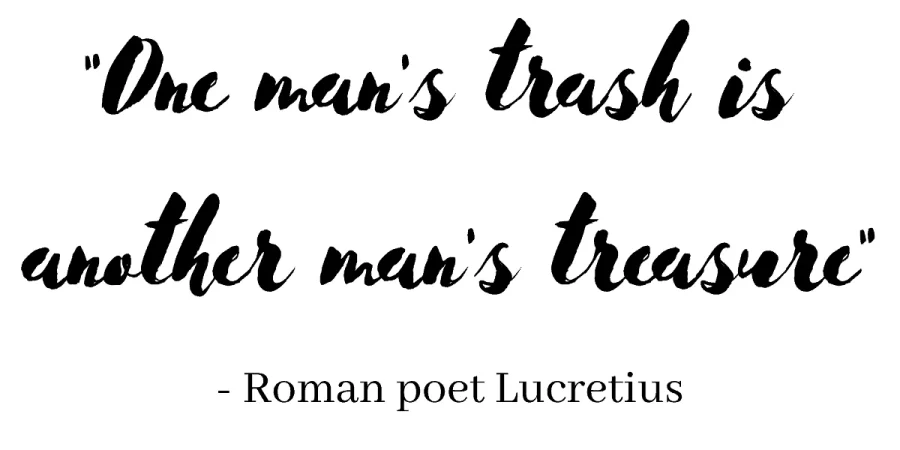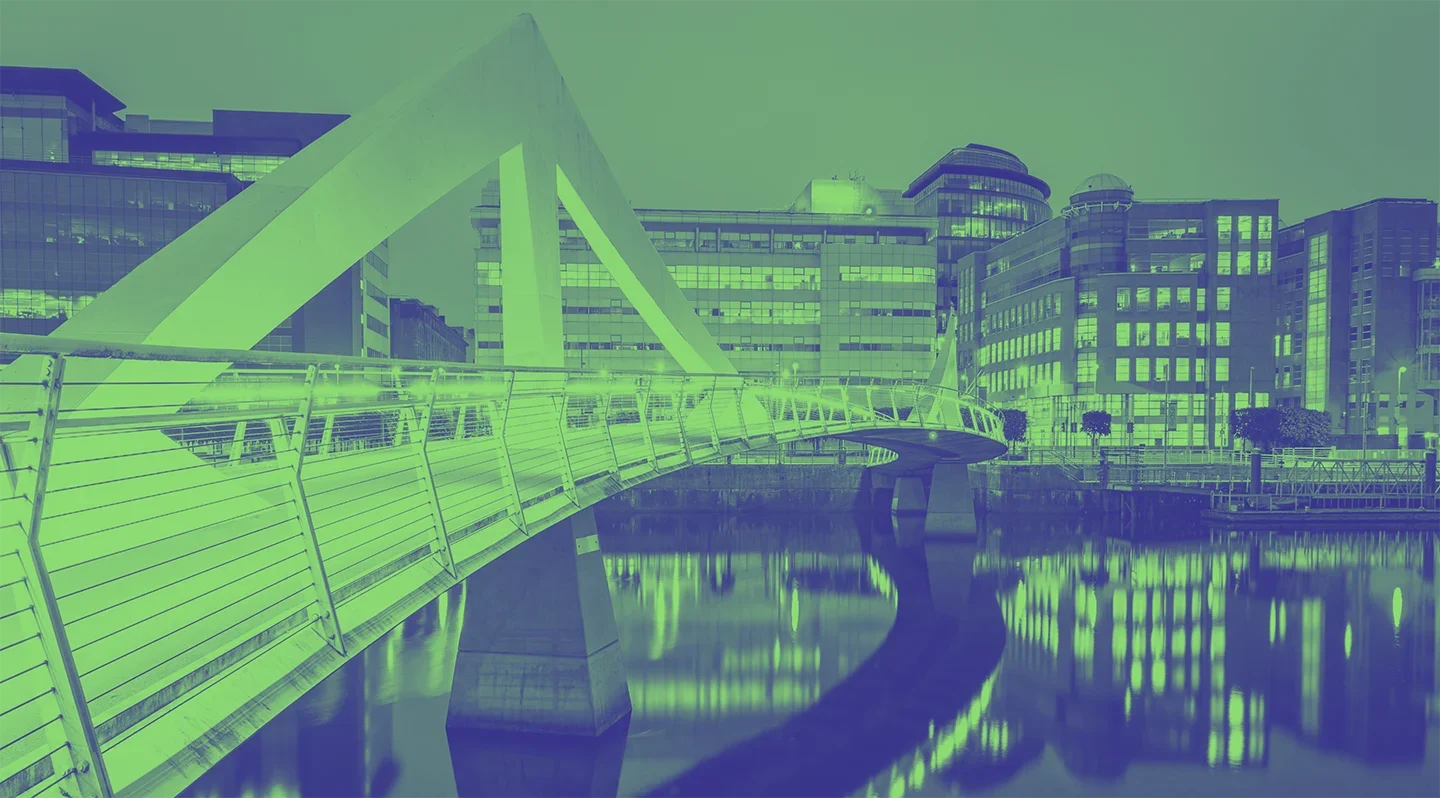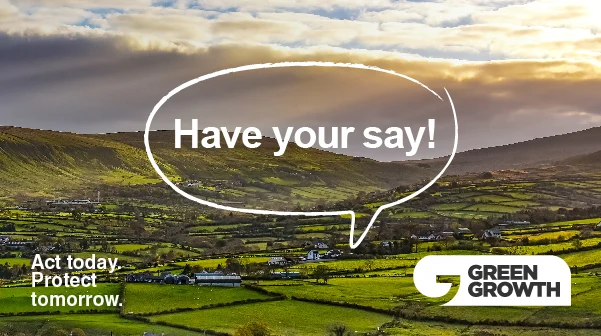By Tim Walker, acting CEO of the local government waste and resource management body, arc21
As a lifelong environmentalist and someone who has worked in Government and council waste services for over 30-years, I’ve spent my entire career looking for the ‘best’ way to get rid of waste and rubbish in all its manifestations, and to improve reuse and recycling.
Thanks to Northern Ireland’s collective efforts, we now recycle just under half of our waste. Unfortunately, that still leaves a staggering 500,000 tonnes of rubbish every year which isn’t or can’t be recycled.
That’s a problem for everyone because what we do with our rubbish can significantly impact upon our environment, both locally and globally. And while waste matters have crept up the news agenda in recent years, the amount of airtime the issue receives is small compared to the impact our “take, make, use” approach to consumption and waste has on the world around us.
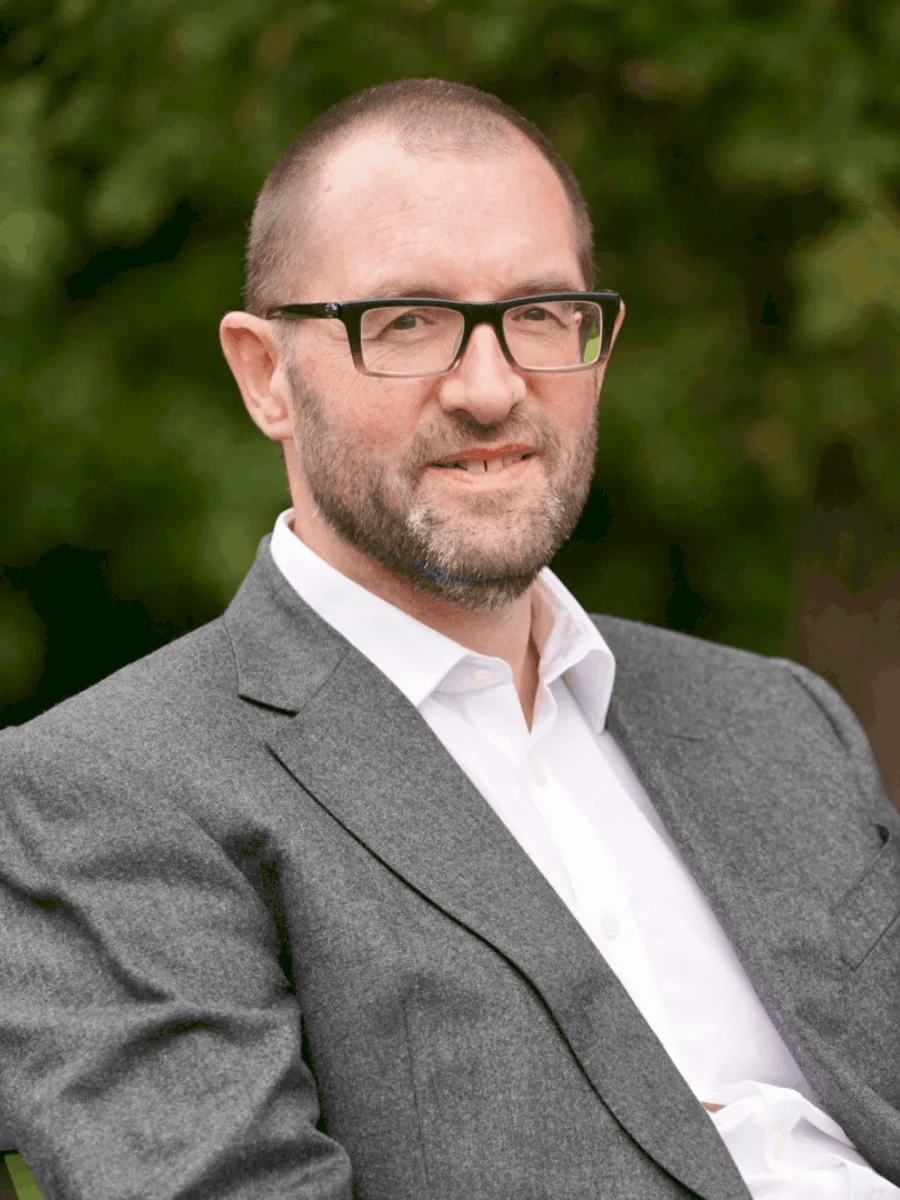
Addressing NI’s Waste Problem
The steps we need to take to address this pernicious problem are similarly opaque – often because they are not publicly (or rationally) discussed and debated.
For many people, waste is still “out of sight / out of mind”. This is surprising as it’s the most critical service which our councils deliver and – after salaries – is also the most costly for ratepayers.
Part of the issue is that we view rubbish as, well, just waste – something which has no value or use, a problem to be dealt with. In truth, much of what we throw away is a resource that could drive the development of a Circular Economy in Northern Ireland while also supporting wider efforts to decarbonise society. That’s the good news – and more on that later – but first we need to be clear why what we do with the detritus of our throwaway society matters.
Not all Greenhouse Gases are Created Equal

Given how attitudes towards climate change have transformed over the past couple of years, I’m thrilled that policy-makers have realised the Climate Emergency is real and that we need to drastically reduce our Greenhouse Gas (GHGs) emissions (personally I believe we need to move faster, but at least we’re on the right track). Not all GHGs, however, are created equal and while CO2 has become the poster boy of the problem in popular consciousness, Methane is much more impactful. In fact, the methane produced by rotting rubbish in landfill is 84 times more potent than CO2 over the critical time period we need to achieve net zero.
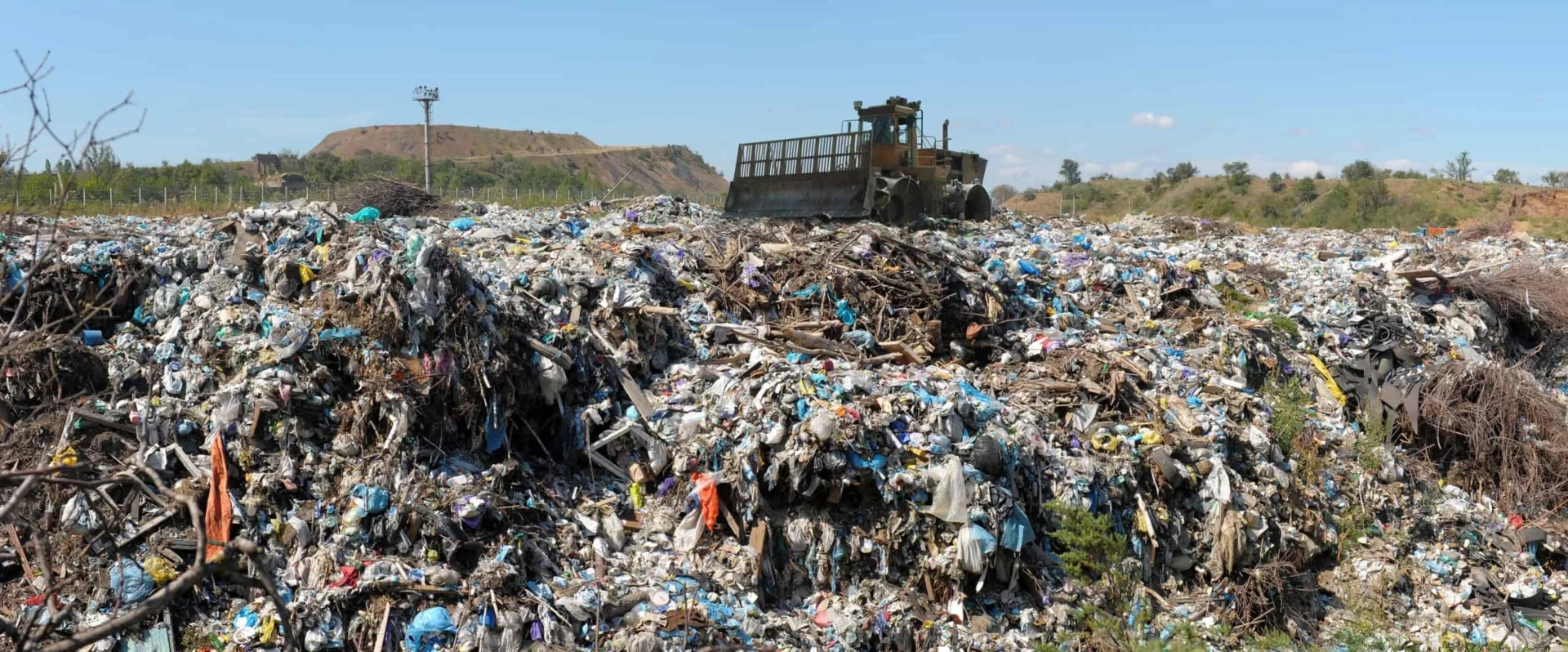
As a means of dealing with rubbish, burying it in a hole in the ground (albeit a highly engineered one) is, as a concept, not exactly modern. We need to stop producing so much rubbish in the first place, but until society makes the changes necessary, we need to upgrade to the already available superior technological solutions. I’ll reserve further comment on the political disconnect between rhetoric and reality save to say that it cannot continue. As Lao Tzu said, “a journey of 1,000 miles begins with a single step”. It’s now high time to stop drafting and start striding.
The Human Condition
Just as not all GHGs behave equally, neither do humans. Society has made leaps in its attitude towards the environment, but sometimes actions don’t live up to aspirations as anyone who has visited the aftermath of a busy bank holiday at one of our beaches can testify to. Our inclination to litter with impunity is wasteful, shameful and deeply damaging for biodiversity and ecosystems and is something which I believe future generations will look back in astonishment at.
Unfortunately, the human condition also means that many with criminal tendencies are drawn to waste. This is because it is expensive to deal with waste properly – even if it’s just being landfilled – and it’s also very difficult to track where waste goes. For the criminally-minded that’s both motive and opportunity as there is much scope to deliberately subvert the current controls with limited consequence.
The Problem of Illegal Dumping
On a global level, illegal dumping of waste is having an appalling impact on the environment and public health. Not that long ago, Greenpeace reported that 40% of the UK’s plastic waste was being exported to Turkey with some of it being dumped on roadways, fields and waterways. Last year, in another example, Malaysia sent back 42 shipping containers of illegally imported plastic waste to the UK.
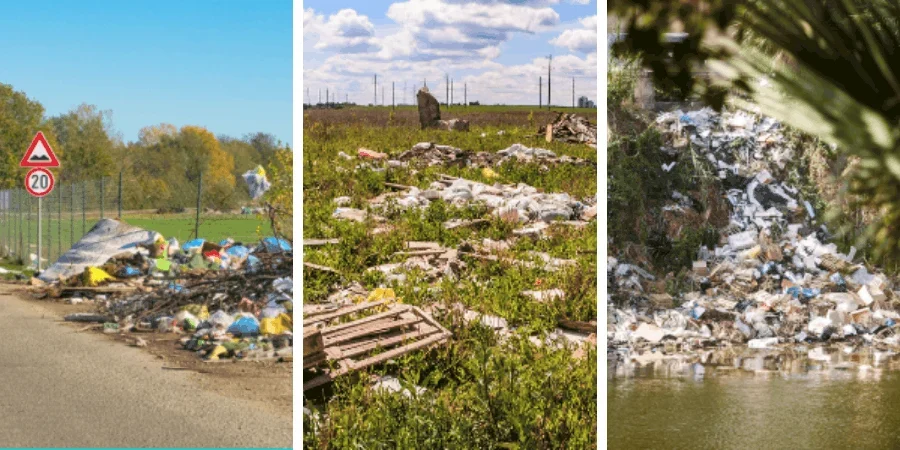
For our part, Northern Ireland is sadly home to one of the largest illegal dumps in Europe at Mobouy near Campsie. This “super-dump” contains more than 1m tonnes of illegal waste which, due to its proximity to the river Faughan, has threatened drinking water supplies to Derry-Londonderry. The estimated clean-up cost is in the region of £50m.
These problems are real; we can’t continue to ignore that rubbish has to be dealt with properly from the get-go, otherwise there are considerable expensive consequences which typically fall to the taxpayer to fund. This situation risks continuing while we consume at our current rates without adequate thought as to what happens to the 95% of stuff we throw away after six months, or where it goes. We’re now living, however, in the Age of Consequence.

The Scourge of Single-Use Plastic
A particular bugbear of mine is our love affair with Single Use Plastic (SUP) which is now the ubiquitous by-product of the 21st Century. This reared its ugly head again during the pandemic with a Keep Northern Ireland Beautiful survey finding that at any one time there are over 7,000 items of PPE litter discarded on Northern Ireland’s streets.
Across the UK, at the height of the pandemic, as many as 52m face masks were predicted to be used daily and globally the figure could have been as high as 129bn every month. SUP is exactly as it is described. It can’t be reused or recycled; it just breaks down into smaller and smaller micro-plastic particles which will end up in oceans, in animals, in the food chain and eventually, in people.
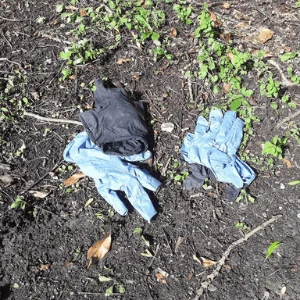
Although we may think that because these issues are well known about at home they are being addressed; that isn’t the case. Globally, recent reports suggest that the amount of plastic waste in our oceans will triple to 600m tonnes by 2040. As a species, there is now a strong case that our mining of resources and casually discarding of what we don’t want/need, which accumulates on sea-floors and in ocean trenches, means that we are entering the geological record (the Anthropocene). We are consuming our world in a rapacious fashion and discarding everything in our wake.
The Four R’s
Producing all the ‘stuff’ which modern life “relies” upon is creating an incessant flood of rubbish which is having a direct impact upon the environment (not to mention the amount of energy and consumption of finite resources needed to produce the “stuff” in the first place).
In my own patch – the arc21 region which includes the six councils in the east stretching from Mid & East Antrim to Newry, Mourne & Down – that flood of non-recyclable rubbish equates to around 15 million wheelie bins worth every year; lined up together they would stretch from Belfast to Kuala Lumpar on the other side of the world.
At present, we either export this rubbish overseas or landfill it, neither of which is a terribly bright or sustainable policy choice.
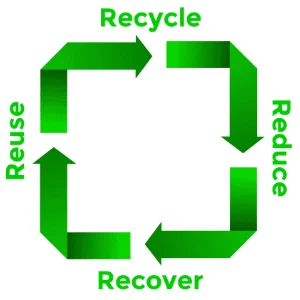
Rather than despair, though, we need to galvanise ourselves into making better choices. Clearly, the best approach is to take actions that support the waste hierarchy – to Reduce, Reuse, Recycle and Recover. The best way to manage waste is to stop producing so much in the first place. Sadly, although, recycling rates have improved in recent years, the actual tonnages have increased too due to a growing population and more consumerism. Rolling back the rubbish tide will require considerable work at a national level between Government and industry. Emerging policies such as Deposit Return Schemes and Extended Producer Responsibility will help by incentivising firms to accelerate the use of materials that are more Circular Economy friendly.
Rubbish as a Resource
The truth is, that after 150 years building a consumer society off the back of several Industrial Revolutions and petro-chemicals, it’s going to take a while to turn the curve and get onto a more sustainable path. That means we’re going to have to learn to live with and deal with our waste while we transition. Rather than view it as a hindrance to the Circular Economy, we need to incorporate waste into it.
In reality, that means using new technology to push recycling rates from their current c.50% to the new 65% target and beyond, and ensuring that we use materials which are more readily recycled and design products that can be recycled (don’t get me started on hybrid packaging). It also means recognising that this will leave hundreds of thousands of tonnes of rubbish which need to be dealt with. And, as we live in a consumer society, achieving these excellent rates of recycling will not be a constant – there will be fluctuations depending on market conditions. We need appropriate infrastructure to deal with this.
Sustainable Purchasing

As consumers we also need to use our collective bargaining power. If everyone made more sustainable choices when buying “stuff”, business would respond. We need to think carefully about how much we consume. Do we really need so much?
Finally, we need to recover value from our rubbish to help relieve pressure on finite resources. In some parts of the world they’re already mining old landfill sites to recover materials. Another commonplace practice is to recover energy from waste, displacing fossil fuels and, increasingly, using the power created to produce clean fuels such as hydrogen to support decarbonisation. Indeed, in June the Commission on Climate Change recommended in the strongest fashion possible that all new facilities consider what technology they can use for carbon capture – and the waste and resources sector is a prime actor here.
There’s nothing I would like more than to wish our rubbish away overnight, but having spent a couple of decades wading (literally at times) through bins I know that’s not going to happen – rubbish doesn’t evaporate. It must be collected, sorted, treated and disposed – at a cost of millions.
There are huge opportunities and with the right public support we could address our addiction to consumption and change how much we produce. Realistically this will probably take 25-35 years. Until then, we need to face up to our responsibilities and recognise the opportunities which we can realise from using our rubbish better and more sensibly while we journey to a better future.
arc21 – Learn more about arc21 and how the organisation supports councils in helping them meet their legal obligations with regards to waste management.
